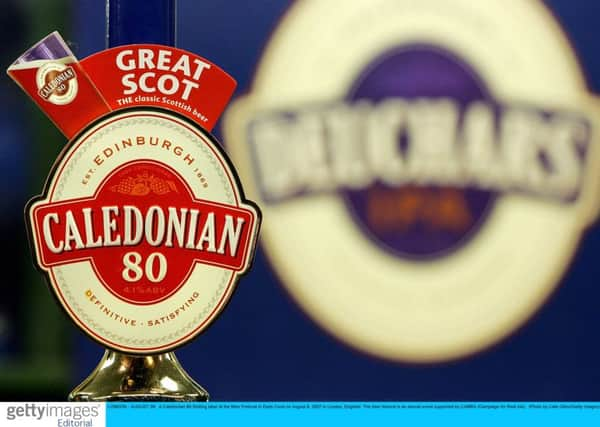Let's raise a glass to hardworking landlords and brewers


That doesn’t mean that small scale brewing isn’t booming in Scotland – it is – with Larbert-based Tryst Brewery winning this year’s Champion Beer of Scotland competition at the Scottish Real Ale Festival in July. Tryst is now considered one of the established Scottish breweries, having been founded in 2003. The 2017 edition of Camra’s Good Beer Guide, launched on 15 September, lists 87 breweries in Scotland, from the Solway Firth to Unst, the most northerly inhabited island in the UK, compared with 42 in the 2007 edition. Since the Guide went to print, it is virtually certain that more have come on stream, producing not only real ales with traditional malt and hops, but with a variety of ingredients ranging from the heather flowers, seaweed and pine nuts – used to flavour beer in Scotland before the introduction of hops – to Scottish brewers, pioneered by the Williams Brothers, to mango and beetroot, yes beetroot, used by the likes of Stirling-based Tinpot.
In terms of pubs, we publish the Good Beer Guide, a celebration of what Camra’s local branches consider to the best 4,500 real ale pubs in the UK, plus the Channel Islands and the Isle of Man. Pubs are visited regularly by local Camra members to ensure consistency and no form of payment has ever been necessary – the sole criterion for entry is the quality of the real ale sold. There are 320 pubs in Scotland in the new edition of the Guide ranging, geographically, from Dumfries to the Shetland Islands.
Advertisement
Hide AdAdvertisement
Hide AdWhat Camra also does, to encourage publicans to go that extra mile, is run a National Pub of the Year competition to find out just who does serve the best beer in the country. Obviously, when it comes to such a prestigious award, it takes slightly more than just consistently selling top quality real ale, as we look for the whole package, from welcome to service and how the pub interacts with the local community. Over the years, three pubs in Scotland have received the ultimate accolade of being Camra’s national pub of the year – the Boar’s Head in Kinmuck, Aberdeenshire; the Fisherman’s Tavern in Broughty Ferry; and the Volunteer Arms in Musselburgh, known locally as Staggs.
The fact that three Scottish pubs have won this prestigious award just goes to show how good the pubs we have in Scotland are and, instead of heaping extra legislation on hardworking publicans, who provide tens of thousands of jobs and lie at the heart of many Scottish communities, perhaps the Scottish Government should have a look at where the real problems lie in respect of any issues that people in this country may have with alcohol – cheap supermarket hooch, often of industrial strength – and give them a break.
I’m sure we can all drink to that.
Colin Valentine, National Chairman, Campaign for Real Ale